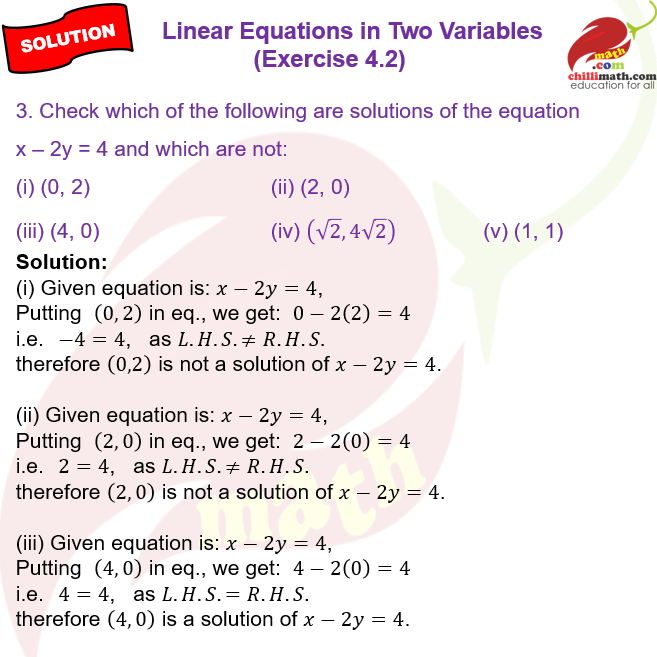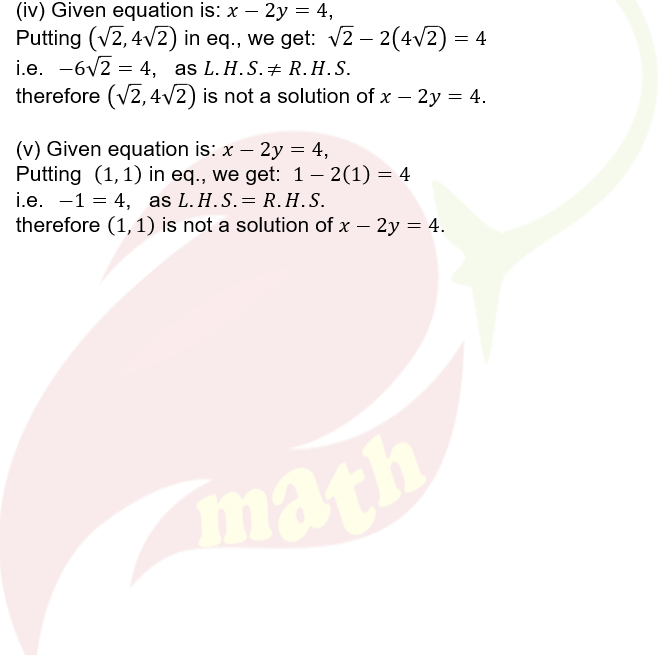Menu
Class 9
Linear Equations in Two Variables
Exercise 4.2
1. Which one of the following options is true, and why?
y = 3x + 5 has
(i) a unique solution,
(ii) only two solutions,
(iii) infinitely many solutions.
2. Write four solutions for each of the following equations:
(i) \(2x + y = 7\)
(ii) \(πx + y = 9\)
(iii) \(x = 4y\)
3. Check which of the following are solutions of the equation \(x – 2y = 4\) and which are not:
(i) (0, 2)
(ii) (2, 0)
(iii) (4, 0)
(iv) \((\sqrt{2}, 4\sqrt{2})\)
(v) (1, 1)
4. Find the value of k, if x = 2, y = 1 is a solution of the equation 2x + 3y = k.


